By Rabbi Yair Hoffman for 5tjt.com
Below, we find 14 things about Shabbos that every teen-age girl should know. Of course, everyone should ask her own Rav about particulars. If something is unclear, please go over it with a Rav or Talmid chochom for more clarification.
Just a quick reminder, however. Shabbos is a badge of honor that we are very proud of – it shows the world that we believe in Hashem and that we believe those that do good and follow Hashem’s laws will be rewarded and that those who do not emulate Hashem and go against His Will will get punished. Rav Chaim Kanievsky zt”l will be rewarded. Lehavdil, ISIS terrorists will be severely punished. We believe in this and observing Shabbos is the badge of honor which declares this. After there the terror incident of nine eleven there was one item that was entirely unavailable to purchase in the US for three entire months. What was that item? It was the American flag. Everyone took enormous pride in that flag. Shabbos is our flag. So even though these 13 things are strictly halacha – please take enormous pride in it.
TASTING
- It is a Mitzvah to taste the Shabbos food before Shabbos begins. But do not overdo it. This is because it is also a Mitzvah to go into Shabbos with an appetite. It is also a Mitzvah on Shabbos to taste (at least) a little bit of all of the food that was made for the Shabbos evening meal.
CANDLE LIGHTING
- Generally speaking, the mother lights the Shabbos candles and this covers the obligation of the daughters of the household as well. If the mother isn’t home, the father should be lighting. If neither are at home, or if the father isn’t doing it, the oldest daughter should light.
- If you are going to be away for Shabbos and are at a retreat or Shabbatone, someone should be lighting for everyone. This is also true for girls that go to sleepaway camp.
- The Shabbos candles should be lit 18 minutes before sunset (and 40 minutes when in Yerushalayim). It is not kavod Shabbos to still be in the shower or to be blow-drying or curling your hair into the 18 minutes before Shkiya.
- After reciting the bracha on the Shabbos lights – one may not do malacha! Even putting out the match is forbidden.
FRIDAY NIGHT KIDDUSH
- After you have accepted Shabbos, you may not eat or drink until you have heard Friday night Kiddush.
- Friday night kiddush is actually a D’oraisah – a Torah Mitzvah. This has implications. What are they? You need to have general intent to fulfill the Mitzvah and you also need to concentrate on it. In other words, “DO NOT SPACE OUT.”
- Another consequence of it being D’oraisah is that you need to hear it from either a bas Mitzvahed girl or a Bar Mitzvahed boy who is not what can be called a “BarelyBar.” A BarelyBar is not a candy bar, it means that the boy is barely bar Mitzvahed. In other words, he has to have reached physical maturity as well. Remember, it is a Torah prohibition of “Onaas Dvarim” to embarrass someone as well. This, therefore, must be handled delicately.
- The Kiddush cup must not be cracked or dented on the top. Even if it is unsteady, the cup may be invalid. The cup must also contain a revi’is which is generally assumed to be 3.3 fluid ounces. Some opinions have it at 4.1 or even more. The wine must be a “boreh pri hagafen” type of wine. If uncooked wine is used – that is, wine that is not mevushal – one must ensure that the housekeeper is not able to access it. Wine that is uncovered overnight or that was directly drunk from – is invalid for kiddush.
GENERAL SHABBOS OBSERVANCE
- Makeup – Applying makeup on Shabbos is forbidden because of two malachos – smoothing (memarayach) and coloring (tzovaya). This is true of all liquid makeup and of all solid makeup that contains either oil or cream. Rav Moshe Feinstein zt”l did allow white talcum powder which does not last for a long time. Some have taken this to allow powdered makeup. Most Poskim and Gedolim do not understand Rav Moshe zt”lin this way.
- Forbidden Smoothing: Chapstick, Lipstick, Solid deodorant, pressing wax onto braces – even Invisalign (a registered trademark) – [we are not even mentioning Play-Dough or Silly Putty because we are grown-ups here]. [Cutting it also forbidden because of mechataich]. To put wax on braces, cut and shape it before Shabbos – put it in a plastic bag and then one may re-apply on Shabbos.
- Brushing teeth : Toothpaste – The overwhelming conclusion of Poskim is that it is forbidden to use toothpaste on Shabbos. Many Poskim hold that you can use water or mouthwash or a tooth washing liquid on Shabbos providing that:
- One avoids squeezing out between the toothbrush bristles
- One only puts the water or other liquid in the mouth and not on the brush.
- Many Poskim hold that you need a special toothbrush for Shabbos. Some are non-squeezable in their engineering. Others hold that it just has to be a different one than during the week. Speak to your Rav for specific issues (such as the Sridei Aish’s opinion).
- Also, you may only rinse your toothbrush if you plan on using it again over Shabbos – but don’t squeeze it out.
- Making Coffee:
The ideal way to make instant coffee is to first fill the cup with hot water from the hot water urn or samovar (SAT word). Then put the instant coffee into the cup. What this does is that it makes putting the coffee into a kli sheini (a “second vessel”) situation. A Kli sheini cannot re-cook liquids that have already cooled off. Some Poskim suggest doing this whole thing in a Kli Shlishi in other words the hot water goes in cup #1 and then cup #2. This method also applies to sugar and artificial sweeteners.
- Eating Before Kiddush
It is assur (forbidden) to eat or drink before hearing or reciting Friday night kiddush. The prohibition begins as soon as one takes on Shabbos and certainly by sunset (shkiyah). Shabbos morning is a bit more complicated, as it depends upon what a young unmarried girl does during the week. What most people hold is that before davening one may drink coffee, tea or soda etc., without having first making kiddush. But to find out more, read on.
NOT EATING BEFORE DAVENING
The source of the general halacha that forbids eating before davening even during the weekday is based upon a Gemorah in Brachos (10b). It is considered haughty to take care of one’s own needs before tending to our obligations toward Hashem. The halacha is further codified in Shulchan Aruch (Orech Chaim 89:3).
DRINKING
A drink, of course, is permitted. Nowadays, it is even permitted to add sugar and milk to one’s coffee, but breakfast before davening, is forbidden unless one is weak or sick. This halacha, according to Poskim, applies to women as well (See Minchas Yitzchok Vol. IV #28).
DVEIKUS IS THE GOAL
The goal of life is to develop a relationship – a strong relationship with Hashem and to emulate Him in all that we do. Dveikus is the highest level of this relationship where we cleave to Him. One method or path to this relationship is through Tefilah.
DEBATE AMONG RISHONIM
There is a fascinating debate among the Rishonim, however, as to the exact nature of this path. There is also, according to this author’s understanding, a difference in understanding between Rav Yaakov Kamenetsky zt”l and Rav Avrohom Pam zt”l as to how to understand the Chofetz Chaim’s view in his Mishna Brurah on the final ruling of the matter.
THE RAMBAM’S VIEW – BIBLICAL
The Rambam (Hilchos Tefillah 1:1) writes that the obligation to pray is from the Torah. The Pasuk in Shma (Dvarim 11:13) states: ul’avdo bechol levavchem – and to serve Him with all your heart.” The Gemorah in Taanis (2a) asks: “What kind of avodah involves the heart? It must be that this is Tefilah.”
The Rambam learns, therefore, that the obligation for prayer is biblical – it is just the wording and the exact times for it that are of Rabbinic origin. At a minimum, the obligation is to include shevach, bakasha, and hoda’ah – praise of Hashem, requests of Hashem, and thanks to Hashem (See Rambam Hilchos Tefilah 1:2).
A KEY MOGAIN AVROHOM
The Mogain Avrohom (OC 106:2) writes that it is possible that the Chachomim did not obligate women further than the Torah obligation. The obligation is thus limited to an expression of praise, thanks, and a request. These three minimum requirements can be accomplished with the morning brachos – a minimum of Tefillah.
THE RAMBAN AND RASHI
According to the Ramban, however, in Sefer HaMitzvos #5 and Rashi (“v’chayavin b’tefilah” Brachos 20b), the obligation of prayer is only Rabbinic in nature. If one is experiencing tzaar – stress or other pain or difficulties, then the obligation is a biblical one. Otherwise, it is strictly a Rabbinic obligation.
However, according to the view of the Ramban and Rashi, even when not in tzaar – the Anshei Knesses HaGedolah who established both this obligation of prayer and the wording of the Shmoneh Esreh – obligated women as well. Even though it is a time-bound Mitzvah, since it is a request for mercy, Chazal obligated women as well in Shacharis and Mincha.
TWO DIFFERENT VIEWS
We thus have two very different views in the Rishonim:
- The Rambam holds that Tefillah is Biblical, but one can fulfill it with very few lines of prayer. The Mogain Avrohom holds that women were not commanded in the Rabbinic Mitzvah – but may do so if they wish.
- On the other hand, the Ramban and Rashi both hold that tefillah is Rabbinic [unless it is a time of tzarah] and that women are fully obligated in it.
HOW DO WE RULE?
The Mishna Brurah (106:4), as well as other Poskim, rule in accordance with the Ramban. In fact, there are other indications that women are fully obligated in the two Shmoneh Esrehs of Shacharis and Mincha.
CHANA
The Yalkut Shimoni (Shmuel, Remez 80) writes explicitly that women are obligated in Shmoneh Esreh and that is why Chana was praying 18 brachos. The problem with this is that Chana actually preceded the Anshei Knesses HaGedolah. Thus, the Mogain Avrohom and the Rambam would understand this Yalkut Shimoni as being a type of asmachta – an allusion to a future rabbinic enactment.
THE CHOFETZ CHAIM’S WIFE
Notwithstanding the ruling of the Mishna Brurah, the Chofetz Chaim’s son, Reb Aryeh Leib Kagan Poupko (1861-1938) writes in his “Sichos HaChofetz Chaim” (Vol. I #27) that his mother, while she was raising the children, almost never davened Shmoneh Esreh and told her son that their father had said that she was exempt.
DEBATE BETWEEN RAV YAAKOV zt”l AND RAV PAM zt”l
It seems to this author that there are two different ways to understand the apparent contradiction between what the Chofetz Chaim writes in his Mishna Brurah, and how his wife conducted herself – according to his son.
RAV YAAKOV’S EXPLANATION
Rav Yaakov Kamenetsky zt”l (1891 – 1986) explained that since the mother is engaged in another Mitzvah of raising the children, she is exempt for another reason. She falls under the concept of “Osaik b’Mitzvah patur min haMitzvah – One who is involved in a Mitzvah is exempt from another Mitzvah” (as cited in Ko somar l’Bais Yaakov page 30). This concept is stated by Rabbi Yossi HaGalili in Sukkah (26a) in regard to travelers of a Mitzvah being exempt from the Mitzvah of Sukkah. So, according to Rav Yaakov, she is still relying on the view of the Ramban, in accordance with the ruling of the Mishna Brurah, but she is exempt from davening because she is involved in another Mitzvah.
RAV PAM’S EXPLANATION
Rav Avrohom Pam zt”l, on the other hand, had another understanding. He understood that there are times in a woman’s life when she can rely on the ruling of the Rambam rather than rule like the Ramban. During the period of a woman’s life when she is raising children, she can rely on the view and reading of the Rambam that allows her to just recite a very minimum davening – in other words, no Shmoneh Esreh.
This is how this author heard Rav Pam explain the words of the Chofetz Chaim’s son. It can be analogous perhaps to keeping two different Sefirah periods from year to year.
BACK TO THE QUESTION
So, how is it that high school girls eat at home first and then wait to daven in school? True, before they eat at home they often say brachos – fulfilling the minimum requirements of the Rambam, but the Mishna Brurah rules like the Ramban – and not like the Rambam!
Also, how does it even fit according to the Rambam? Do brachos fulfill the three requirements? Many Poskim hold that the word Boruch – also contains a request for bracha in that it is stating, Hashem, You are the source of all blessing [and thus grant me blessing too]. But does everyone who relies on the Rambam know this? If not, perhaps they should.
We could, of course, make an exception for someone who is not feeling well or is weak, to rule like the Rambam – but how can we be doing this across the board to all high school girls?
RAV PAM
According to Rav Pam zt”l, perhaps this is one of those times that we can rely on the Rambam instead of the Ramban, because this way, at least they will be learning how to daven properly in front of their mechanchos and teachers.
RAV YAAKOV
According to Rav Yaakov zt”l, it would be more problematic because there is no “osaik bamitzvah patur min haMitzvah” here. But even according to the view of Rav Pam zt”l – aren’t many high school girls really independent enough here that the don’t really need to daven in front of teachers? If so, then how is it allowed?
POSSIBLE ALTERNATIVE EXPLANATION
I would like to possibly suggest an alternative explanation. There is much to be gained in spirituality for girls to be performing Mitzvos – including davening, altogether. This may be reason enough, perhaps, to be bdi’avad, relying on the Rambam. Since it is impractical for girls’ schools to have a breakfast session, the benefit outweighs the loss. So, we could be relying on the secondary view because of other factors – but the halacha is still like the Ramban.
The situation might be analogous to the halacha of leining from a posul Sefer Torah. Regarding someone that was called up to the Torah before any invalidity in the Torah was discovered, we rely on the Rambam’s view that, when there is only an invalid Sefer Torah, we may read from it. We do not call up someone else from a second Sefer Torah for that aliyah. However, for the next Aliyah, we cannot call someone to read from the invalid Sefer Torah.
SHABBOS MORNING
All this brings up another very pertinent issue. There is another critical difference between Rav Pam’s approach and Rav Yaakov’s approach in regard to Shabbos morning, and in regard to the Rambam versus the Ramban.
THE PROHIBITION OF EATING BEFORE KIDDUSH
If one is following the view of the Rambam during the week, then merely saying brachos in the morning creates a prohibition of eating before Kiddush. The prohibition begins immediately after one has davened. The prohibition means that one cannot even taste water until one has made or heard Kiddush. According to the Ramban – then it is not a problem. A woman or girl may drink until she has davened her Shmoneh Esreh. According to our third explanation, if it is correct, we are not temporarily setting aside the view of the Ramban to accommodate these high school girls. We still maintain it, but we are allowing it so that the girls will gain the benefit of davening together in a group.
WHO TO FOLLOW ON SHABBOS MORNING?
So which view should a woman or young lady follow? Should she follow Rav Yaakov’s explanation or Rav Pam’s? Or perhaps is this third view the one she should be following. The answer, of course, is to ask her own Rav or Posaik as to how she is reconciling her weekday conduct and her Shabbos conduct.
The author can be reached at [email protected]


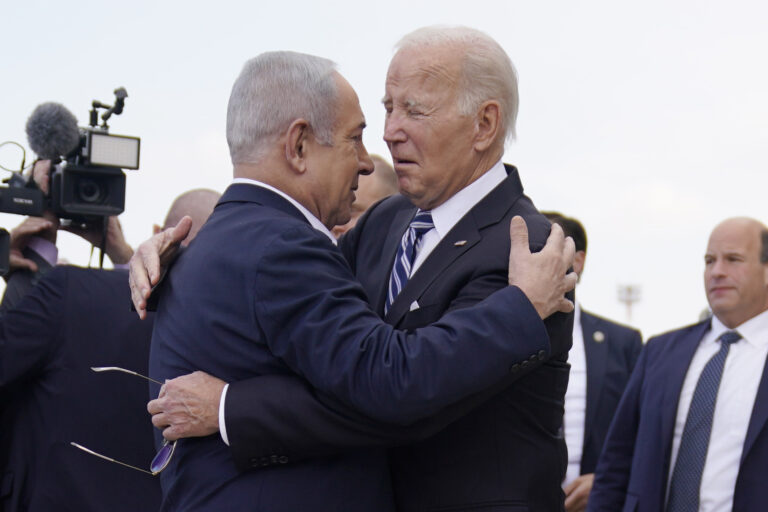

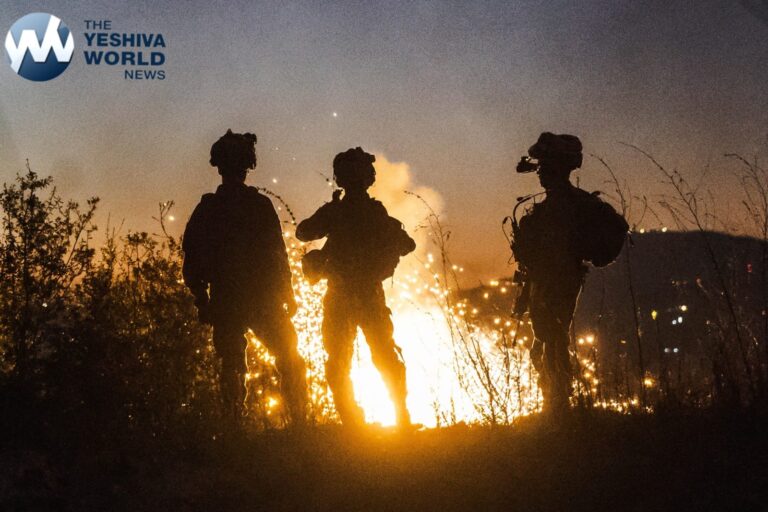

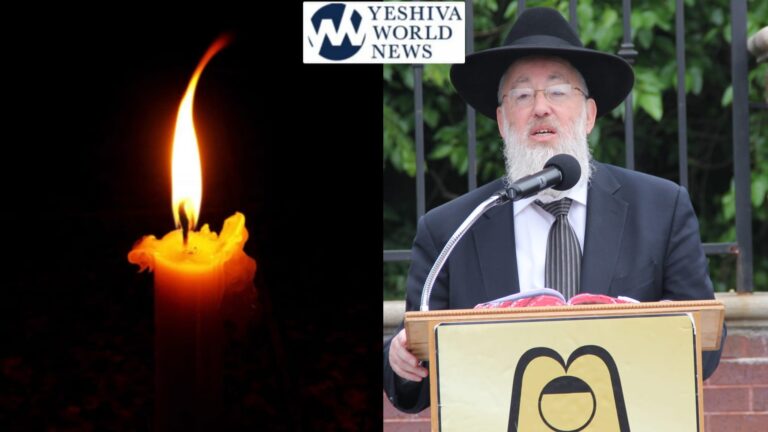
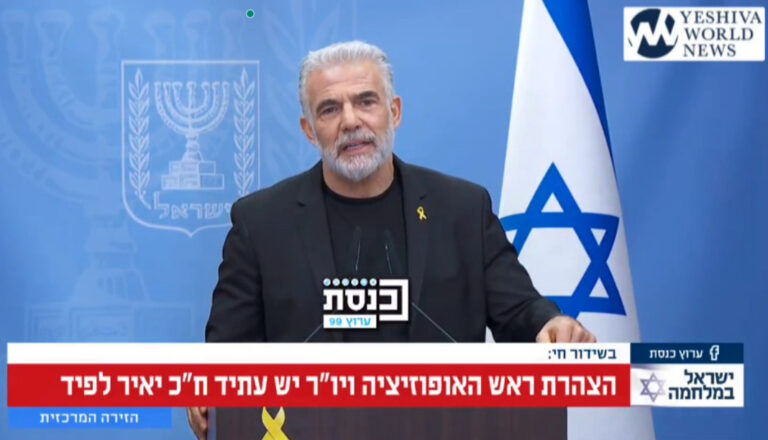

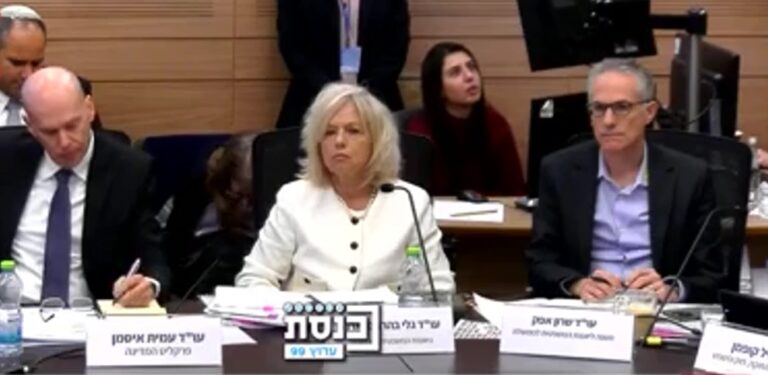


2 Responses
and that is why Chana was praying 18 brachos. Problem with this posit is, that when עלי הכהן saw חנה praying quietly, it was ראש-השנה that day as it says ויהי היום which is taken to mean it was ראש-השנה when of-course our עמידה contains 7 ברכות or perhaps 9 if מוסף, but surely not 18.
147, I assure you Rabbi Hoffman knows Brochos 29A:
הָנֵי תֵּשַׁע דְּרֹאשׁ הַשָּׁנָה כְּנֶגֶד מִי? אָמַר רַבִּי יִצְחָק דְּמִן קַרְטִיגְנִין: כְּנֶגֶד תִּשְׁעָה אַזְכָּרוֹת שֶׁאָמְרָה חַנָּה בִּתְפִלָּתָהּ, דְּאָמַר מָר: בְּרֹאשׁ הַשָּׁנָה נִפְקְדָה שָׂרָה רָחֵל וְחַנָּה.
Corresponding to what were these nine blessings of the Rosh HaShana additional prayer instituted? Rabbi Yitzcḥak of Kartignin said: They correspond to the nine mentions of God’s name that Channah said in her prayer (I Samuel 2:10). The connection between Chhnnah’s prayer and Rosh HaShana is based on what the Master said: On Rosh HaShana, Sarah, Rachel, and Channah were remembered and the divine decree that they would conceive their sons was issued.